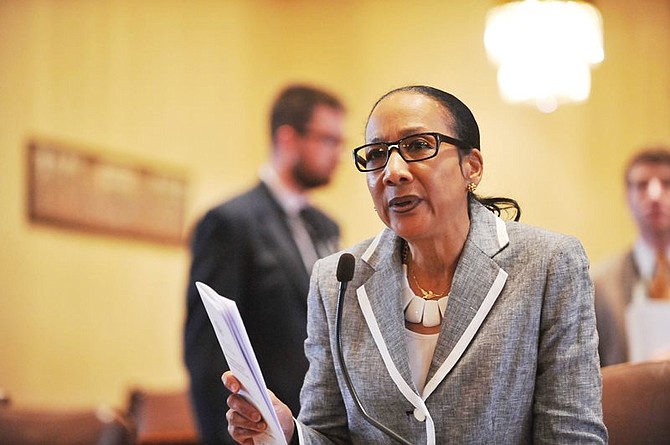Legislation to Protect Runaway Wards of the State Passes Senate, Moves to House
The Ill. Senate recently passed Important legislation that seeks to protect wards of the state, who run away from privately run facilities.
Cook County Sheriff ,Thomas J. Dart and Ill. State Sen. Bill Cunningham, (Dist.-18th), introduced SB 1775 otherwise known as the Safeguard Our Children Act, which was passed 55-0, after a Chicago Tribune investigation found that some privately run facilities under contract with the state’s Department of Children and Family Services were not notifying authorities when youth ran away from the facilities. Some of the runways were reportedly sexually assaulted or lured into prostitution.
“Our most vulnerable children deserve our close attention, mentoring and firm, but compassionate, direction,” Dart said. “Negligent operators who employ family members to watch television while teens walk out the door into the arms of abusers should be cut off. The bill will give state authorities and law enforcement notice in time to rescue more of our at-risk youth.”
If passed in the Ill. House of Reps., The Safeguard Our Children Act would make it a law to report any child missing more than 12 hours, to the Department of Children Family Services (DCFS) and to law enforcement. A filed missing person's report would also be required.
It would also require facility operators to draw up a Plan of Care for any child scheduled to temporarily leave the facility for more than 24 hours. The Plan of Care would include information such as the location of the visit, contact information for the person the child is visiting, and the date the child is expected to return to the facility.
The state pulled all of its youth from one facility earlier this year after Sheriff Dart’s Child Protection Response Unit investigated and found four of the nine girls on the roster missing and presumed to have run away. They also learned that a 14-year-old girl tried to return to the facility and was turned away by staff; sheriff’s police later located her.
The Chicago Citizen Newspaper asked Sen. Jacqueline Y. Collins (Dist. - 16th), why were there no laws requiring facilities to report when children were missing, prior to this bill.
Sen. Collins replied saying, “DCFS currently has internal written procedures that require staff to report to local law enforcement, the youth's case worker and a national missing children hotline when a youth goes missing from a facility. However, as the Tribune documented in its series last fall on conditions at DCFS facilities, these procedures were often ignored, and staff often failed to report runaways to the proper authorities in a timely fashion. As a result, DCFS is unaware of the location of an undetermined number of its wards, many of whom are likely homeless and/or victims of sex trafficking and other forms of exploitation.”
The Safeguard Our Children Act will put strict reporting requirements into state law, strengthening the agency's obligation to work with law enforcement to find missing youth quickly.
When asked if she felt the bill would pass in the House, Sen. Collins replied, “SB 1775 is scheduled for a hearing before a House committee on Wednesday. While I can't predict what the House will do with this particular legislation, members of both chambers are aware of this issue and the shameful deficiencies in the way Illinois has treated its high-need wards. The Safeguard Our Children Act is one of a number of pieces of legislation introduced this year, in both the House and the Senate, to address the many issues the Tribune series brought to light. It is essential that the agency accurately report runaways and that these youth be located and returned to safe environments, but that's only part of the problem. We also need to ensure that these facilities are, in fact, safe environments; that their young and vulnerable residents are not bullied, abused or exploited and that DCFS has both the oversight and the resources it needs to raise wards of the state to productive, functioning, hope-filled adulthood.”
Latest Stories
- Congressional Black Caucus Condemns Pritzker For Heavy-Handing In Senate Race
- Officiants, Speakers, and Performers are Announced for Reverend Jesse L. Jackson’s Peoples Celebration of Life and Homegoing Services
- Illinois EPA Announces $1.5 Million in Funding Available for Energy Efficiency Upgrades at Public Water Supply Facilities
- As We Prepare to Lay Rev. Jackson to Rest, I’m Thinking About Words That Build Coalitions
- SOUTH CHICAGO RESIDENTS LAUNCH “SOUTHEAST NEIGHBORS FOR QUANTUM” IN SUPPORT OF HISTORIC ILLINOIS QUANTUM AND MICROELECTRONICS PARK DEVELOPMENT
Latest Podcast
MEDICAL POWER OF ATTORNEY


